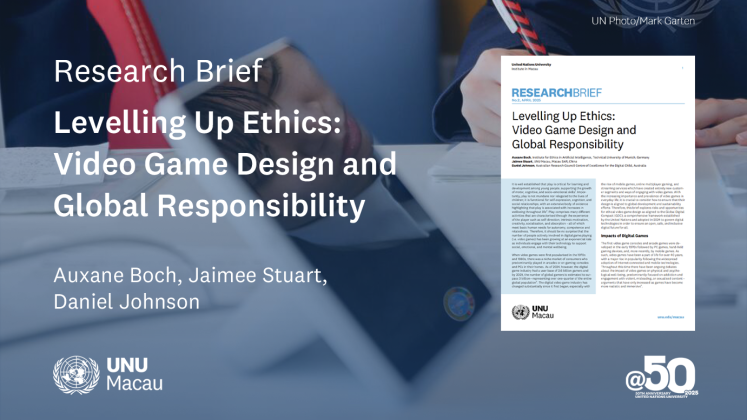Introduction
It is well established that play is critical for learning and development among young people, supporting the growth of motor, cognitive, and socio-emotional skills. Importantly, play is not mundane nor relegated to the lives of children; it is functional for self-expression, cognition, and social relationships, with an extensive body of evidence highlighting that play is associated with increases in
wellbeing throughout life. Play comprises many different activities that are characterised through the experience of the player such as self-direction, intrinsic motivation, creativity, socialisation, and absorption – all of which meet basic human needs for autonomy, competence and relatedness. Therefore, it should be no surprise that the number of people actively involved in digital game playing
(i.e. video games) has been growing at an exponential rate as individuals engage with their technology to support social, emotional, and mental wellbeing.
When video games were first popularised in the 1970s and 1980s, there was a niche market of consumers who predominantly played in arcades or on gaming consoles and PCs in their homes. As of 2024, however, the digital game industry had a user base of 2.6 billion gamers and by 2029, the number of global gamers is estimated to surpass 3 billion—representing over one-quarter of the entire
global population. The digital video game industry has changed substantially since it first began, especially with the rise of mobile games, online multiplayer gaming, and streaming services which have created entirely new customer segments and ways of engaging with video games. With the increasing importance and prevalence of video games in everyday life, it is crucial to consider how to ensure that their design is aligned to global development and sustainability efforts. Therefore, this brief explores risks and opportunities for ethical video game design as aligned to the Global Digital Compact (GDC), a comprehensive framework established by the United Nations and adopted in 2024 to govern digital technologies in order to ensure an open, safe, and inclusive digital future for all.
Recommendations
To protect player autonomy, developers should commit to positive design practices that prioritise engagement without manipulation, avoiding deceptive patterns andexploitative monetisation techniques.
To promote critical thinking and cooperation, multiplayer games should be designed to encourage collaboration as opposed to aggression, integrating mechanics that teach pro-social skills such as communication, consensus-building, and teamwork. Additionally, video games should explore nuanced ethical dilemmas through high-quality storytelling, helping players develop empathy towards other groups and an understanding of complex social issues.
To ensure gender and cultural inclusivity, developers must actively seek input from diverse communities to authentically represent gender, culture, and diverse marginalised populations, such as ability-based identities. Accessibility testing should be a standard practice, ensuring that game mechanics do not unintentionally disadvantage marginalised players.
To foster cultural awareness and intercultural skills, the video game companies should commit to meaningful community partnerships, consulting advocacy groups and cultural experts to prevent misrepresentation and promote respectful, informed portrayals.
By systematically and consistently embedding these principles into video game design, the industry can create more inclusive, cooperative, and ethically responsible gaming experiences that enhance social well-being and cohesion while maintaining the creativity and immersion that define the medium.
Access the full research brief here: Levelling Up Ethics: Video Game Design and Global Responsibility.
Suggested citation: Auxane Boch, Jaimee Stuart and Daniel Johnson. Levelling Up Ethics: Video Game Design and Global Responsibility : UNU Macau, 2025.


